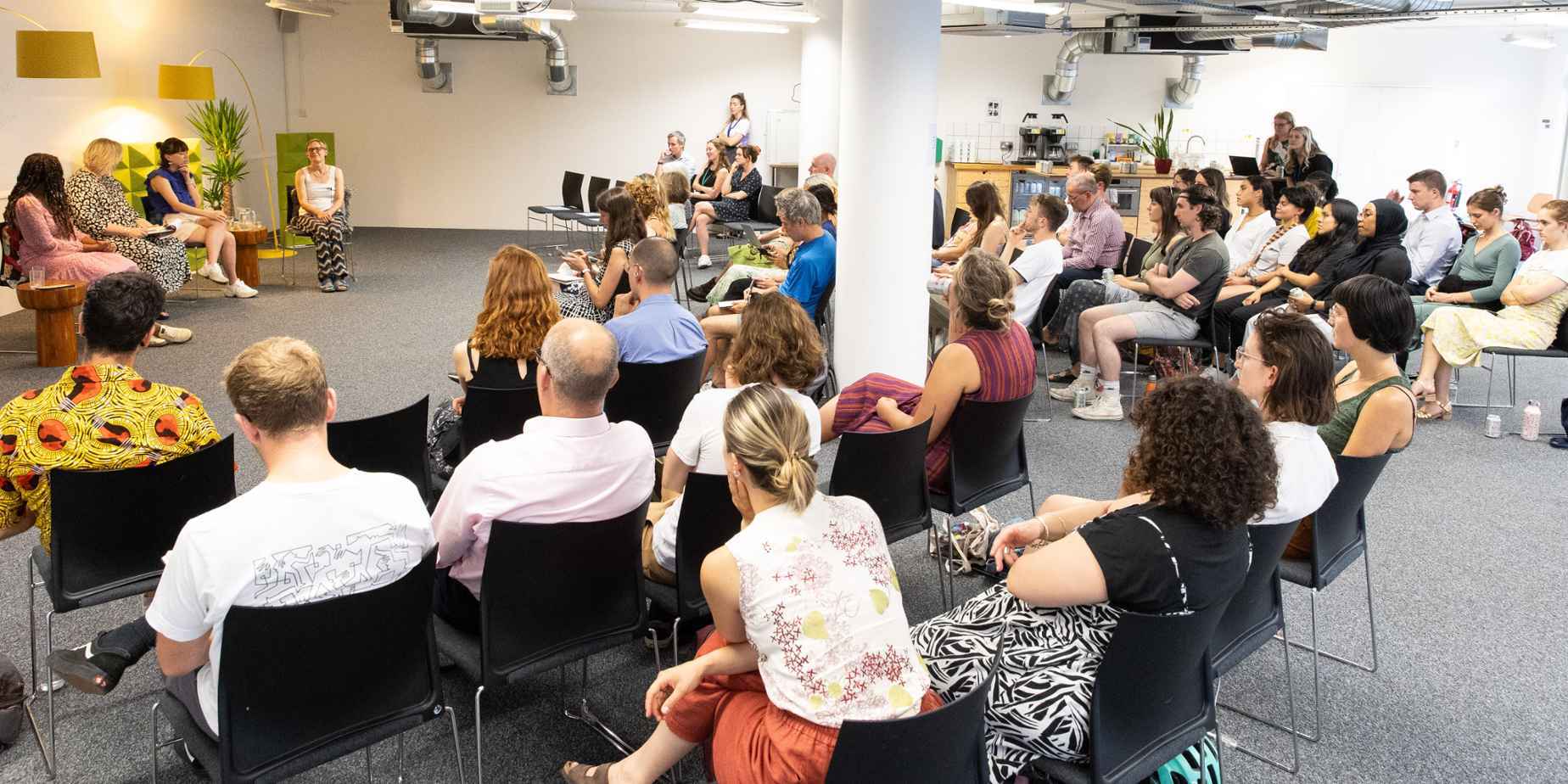In fact, recent polling from Triodos shows that more than half of UK adults admit to feeling grief about what is happening to the planet, while three in 10 18-34 year olds have sought help from a therapist or medical professional for eco-anxiety.
In September, Triodos brought together activists Tori Tsui, Dominique Palmer and Mary Stevens in Bristol to discuss climate justice, environmentalism and sustainable finance.
Hosted by Triodos’s director of marketing and communications, Zoe Ruthven, the panel shared thoughts on climate anxiety, intersectionality and transforming anxiety into action.
Read on for five of the key takeaways from the event.
Social injustice and mental health are deeply entwined with the climate crisis
“If we are to have diverse and equitable solutions, we need to have intersectionality, so we don’t replicate the pattern of exploitation of the planet and people.”
The climate crisis is a complex and global problem, and it’s the same story with mental health. The climate crisis affects everyone differently, especially marginalised groups and communities as the crisis is linked to systemic oppression. Intersectionality is therefore key if we are to understand, and act on, the links between the climate crisis and how they impact our mental health.
Communicating the crisis: the power of storytelling
“Emphasising listening, rather than speaking.”
Facts and figures are useful to help understand the scale of how the climate crisis is affecting our mental health – but they don't necessarily communicate the full significance of people's experiences, nor resonate with people on an emotional level.
That is why telling individual stories of the climate crisis is so powerful. By engaging with people on a deeper level, we can inspire them to take action – which then helps ensure that those that are most impacted by the climate emergency aren't bearing the whole burden of tackling it.
Sharing emotive, human stories is key to encouraging people to care and engage with the climate movement. The panel felt that there is great power in storytelling, and that we could be better served by listening more and speaking less, especially to those from marginalised groups.
Social licence permits big banks to continue to do business as usual
“We need Triodos to be the norm, and we need to show big banks that sustainable banking can be done.”
As Tori explained, social licence is the licence we give a particular organisation to exist based on its proximity to social events: such as big banks having their name associated with arts and culture by sponsoring music festivals.
This takes the attention away from negative and harmful investments that these banks are making, such as investing in expanding fossil fuel extraction; thereby enabling financial intuitions to present a responsible, generous front, while simultaneously investing in the very areas that are threatening to drive the world towards climate catastrophe.
This narrative allows the continuation of business as usual: something the planet cannot afford. The panel acknowledged BankTrack’s 2023 Banking on Climate Chaos report, which revealed that the 60 largest banks have poured $5.5 trillion into fossil fuels since the adoption of the Paris Agreement in 2015.
Community is crucial to empower more of us to move our money
“It is not just you: the feeling of perfection is often perpetuated when we see ourselves as individuals rather than a part of a collective and community.”
Feelings of guilt, hopelessness and shame are common symptoms of climate anxiety, but Dominique, Tori and Mary reminded us that it really isn’t just you, and that we can combat these negative feelings by working collectively to protect the environment.
Moving your money is one example of this. Switching your bank account, savings, pension or investments from a bank that funds fossil fuels to one that doesn’t, is a powerful individual action that can collectively put huge pressure on financial institutions to do better.
Money Movers was set up in response to the overwhelming challenge of fossil fuel financing, and encourages people to get friends and colleagues together to ask what their money is funding at the moment, and what it could be put towards instead.
Encouraging action: turning shame and anger into optimism and hope
“Absolute injustice gets me out of bed.”
What encourages climate action? The panel reflected that shame and anger are powerful drivers, with guilt about our environmental impact forcing people to think introspectively about their lifestyle. However, Tori argued that shaming individuals is not the answer, as it disempowers people and makes them feel they are the reason for the climate crisis – rather than deeply entrenched structures, powerful corporations and ineffective government policies.
Tori claimed that anger tends to be her most powerful motivator, as “absolute injustice gets [her] out of bed”. However, she also noted that anger is not a sustainable approach, and can cause burnout and exhaustion over time.
Instead, the panel emphasised the need for optimism. Without taking away from the gravity of the crisis, sharing climate wins and Positive News can be a key motivator for many, as it highlights progress being made.
And finally, hope. Hope is where we imagine the future that we want. Climate hope involves acknowledging injustice and the horrifying impacts of the climate crisis, while identifying how the world can be different, and how we can work together towards that future.






Thanks for joining the conversation.
We've sent you an email - click on the link to publish your post.